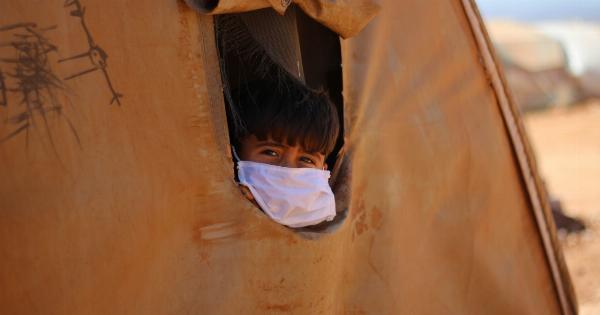Illnesses are a common occurrence in the lives of children. From the moment they are born, children are exposed to various viruses and bacteria that can make them sick.
While some illnesses may be mild and easily treatable, frequent illnesses can have a significant impact on a child’s health and overall well-being. In this article, we will explore why frequent illnesses can be dangerous for children.
1. Weakened Immune System
A child’s immune system is still developing, making them more susceptible to infections and illnesses. Each time a child falls sick, their immune system gets activated to fight off the illness.
However, frequent illnesses can weaken their immune system, making them more vulnerable to infections. This leaves them at a higher risk of developing severe and even life-threatening diseases.
2. Nutritional Deficiencies
Illnesses can often lead to a decrease in appetite, making it difficult for children to consume an adequate amount of nutrients.
When children consistently miss out on the necessary nutrients due to poor appetite during sickness, it can result in nutritional deficiencies. These deficiencies can hamper their growth and development, affecting their physical and cognitive abilities in the long run.
3. Disrupted Education
Frequent illnesses can disrupt a child’s education. When children miss school due to illness, they miss out on valuable learning opportunities. This can lead to gaps in their knowledge and skills, putting them at a disadvantage academically.
Additionally, children who frequently miss school may struggle to catch up with their peers, leading to feelings of frustration and low self-esteem.
4. Social and Emotional Impact
Illnesses can also have a significant social and emotional impact on children. When children are frequently sick, they may have to miss out on social activities, making it difficult for them to form and maintain friendships.
This can result in feelings of isolation and loneliness. Moreover, chronic illnesses can also lead to increased stress and anxiety, affecting the overall emotional well-being of a child.
5. Increased Healthcare Costs
Frequent illnesses can lead to a substantial increase in healthcare costs. Parents may have to visit doctors more frequently, purchase medications, and even cover hospitalization expenses if the illnesses are severe.
The financial burden that comes with frequent illnesses can put a strain on families and may limit their access to other essential resources.
6. Impact on Parents and Caregivers
Frequent illnesses can also take a toll on parents and caregivers. When a child falls ill frequently, it can disrupt their daily routines and responsibilities.
Parents may have to take time off work or rearrange their schedules to care for their sick child. This can result in increased stress levels and fatigue for parents, affecting their overall well-being and ability to provide consistent care.
7. Developmental Delays
Children who experience frequent illnesses may be at a higher risk of developmental delays. Illnesses can interfere with important developmental milestones, such as language acquisition, fine motor skills, and cognitive abilities.
This can lead to long-term developmental delays, impacting a child’s overall growth and potential.
8. Risk of Complications
Frequent illnesses can increase the risk of complications.
Even common illnesses like the flu or upper respiratory infections can result in secondary infections or severe complications, particularly if the child’s immune system is already weakened. These complications can range from pneumonia to organ damage, and in some cases, can be life-threatening.
9. Long-Term Health Consequences
Children who experience frequent illnesses may be more prone to long-term health consequences. Conditions like asthma, allergies, and autoimmune disorders can develop or worsen due to the repeated exposure to illnesses.
Frequent illnesses can also lead to a higher risk of chronic conditions in adulthood, such as cardiovascular disease or respiratory disorders.
10. Impact on Overall Quality of Life
Ultimately, frequent illnesses can significantly impact a child’s overall quality of life.
When children are frequently sick, they may miss out on essential experiences, such as playing with friends, participating in sports or hobbies, and enjoying a normal childhood. This can affect their happiness, self-esteem, and ability to enjoy a well-rounded childhood.
Conclusion
While illnesses are a part of growing up, frequent illnesses can pose various dangers for children.
They can weaken the immune system, cause nutritional deficiencies, disrupt education, impact social and emotional well-being, increase healthcare costs, affect parents and caregivers, lead to developmental delays, increase the risk of complications and long-term health consequences, and overall diminish a child’s quality of life. It is crucial for parents, caregivers, and healthcare providers to take appropriate measures to prevent and manage frequent illnesses in children.






























